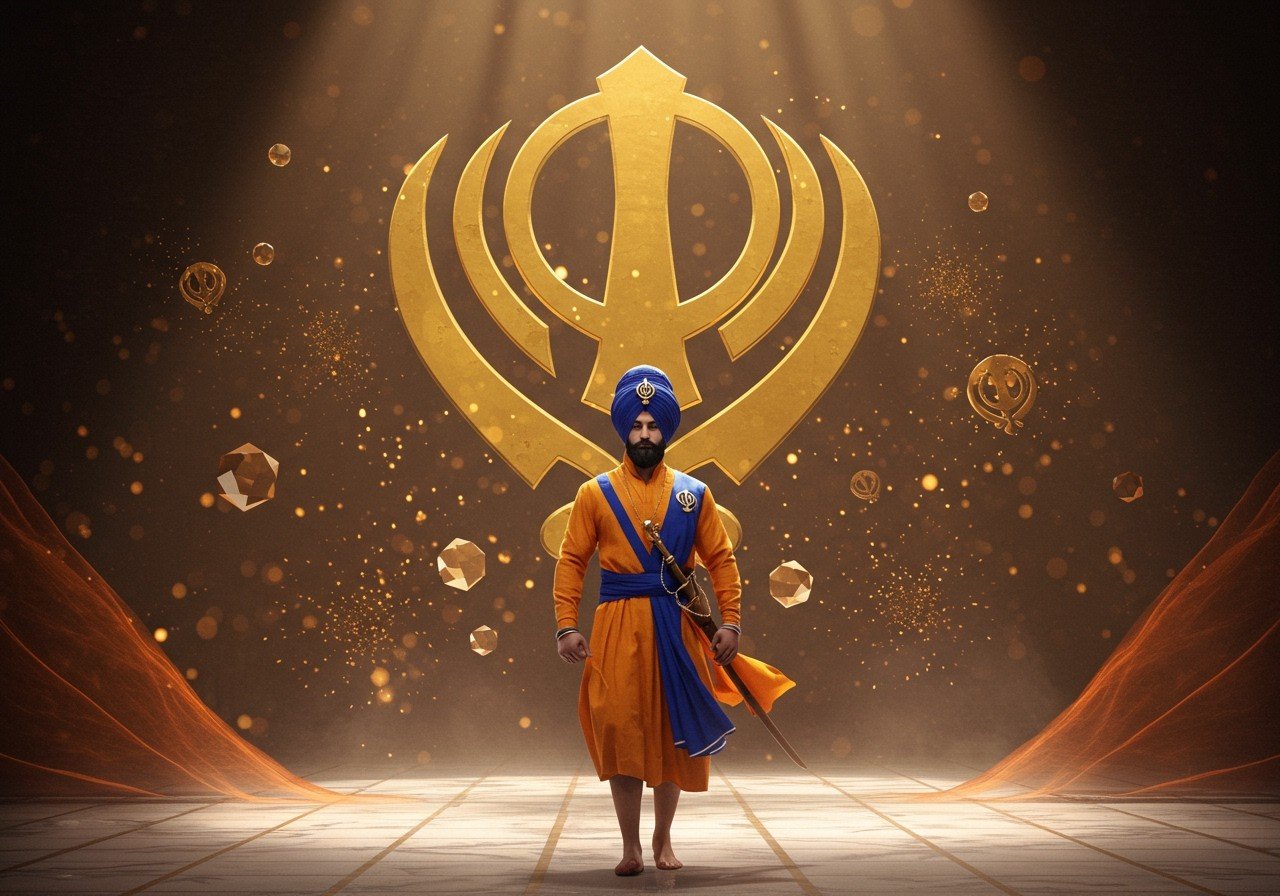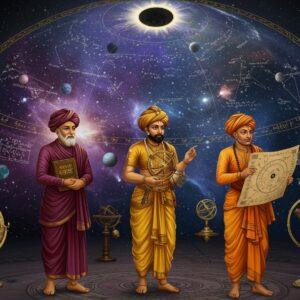
Sikhism, a faith deeply rooted in tradition and spiritual devotion, emphasizes living a life of service, humility, and justice. Central to Sikh identity are the Five K’s, known as the Panj Kakkar. These aren’t merely symbols; they are articles of faith representing a Sikh’s commitment to their spiritual path. Introduced by Guru Gobind Singh Ji in 1699, the Five K’s serve as a constant reminder of a Sikh’s dedication to their beliefs and values. This guide delves into each of the Five K’s—Kesh, Kangha, Kara, Kachera, and Kirpan—exploring their significance and relevance in the modern world.
The Profound Meaning of the Five K’s
The Five K’s are more than just outward symbols; they embody the core principles of Sikhism. Each K holds deep spiritual meaning, guiding Sikhs towards a life of integrity, self-discipline, and service to humanity. They represent a moral and ethical code, reminding individuals of their commitment to the Sikh community and their faith. Sikhs across the globe, united by these articles of faith, proudly wear the Five K’s as a testament to their identity.
- Kesh (Uncut Hair): Kesh represents the acceptance of God’s creation and a rejection of vanity. It symbolizes spirituality, strength, and honor, reminding Sikhs to focus on inner growth rather than outward appearances. For men, a turban neatly secures the Kesh, while women often use a chunni (long headscarf).
- Kangha (Wooden Comb): The Kangha signifies cleanliness and order, both physically and spiritually. It symbolizes keeping one’s life and thoughts in order, promoting hygiene and discipline. Tucked under the turban, it serves as a constant reminder of the importance of maintaining inner and outer purity.
- Kara (Steel Bracelet): The Kara, a steel bracelet worn on the dominant wrist, symbolizes eternity, strength, and unbreakable connection to the divine. Its circular shape signifies the eternal nature of God, encouraging Sikhs to act with integrity and remain connected to their community.
- Kachera (Cotton Undergarment): Symbolizing modesty, self-control, and moral living, the Kachera reminds Sikhs of the importance of leading a disciplined life. Historically worn by Sikh warriors, it represents preparedness and the ethical value of overcoming lust.
- Kirpan (Ceremonial Sword): Representing courage, self-defense, and the fight against injustice, the Kirpan is a symbol of a Sikh’s duty to protect the weak and oppressed. It stands for justice and righteousness, reminding Sikhs to stand up for what is right, even in the face of adversity.
Kesh: Embracing Natural Form
Kesh, the practice of keeping uncut hair, signifies a deep acceptance of God’s creation. For Sikhs, it’s about honoring the natural form bestowed upon them, a testament to their faith and a rejection of vanity. Kesh emphasizes spiritual growth and inner strength over outward appearances. Just as we cherish our traditions, we embrace our natural selves.
Kangha: Order and Discipline
The Kangha, a small wooden comb, is more than just a grooming tool. It symbolizes order, discipline, and cleanliness in every aspect of life. By keeping their hair tidy and well-maintained, Sikhs demonstrate a commitment to both physical and spiritual hygiene. It’s a tangible reminder to keep thoughts and actions pure and organized. Similar principles are found in various spiritual traditions, reflecting a universal value.
Kara: Strength and Eternity
The Kara, a steel bracelet worn on the dominant wrist, symbolizes eternity, strength, and an unbreakable bond with the divine. Its circular shape reflects the infinite nature of God, a constant reminder of the continuous cycle of life. The Kara also signifies the commitment Sikhs make to their community, fostering a sense of unity and mutual support. Just as sacred sites connect us to the divine, the Kara connects us to our faith and our community.
Kachera: Modesty and Self-Control
The Kachera, a special undergarment, embodies the values of modesty, self-control, and purity. It serves as a reminder to lead a disciplined life, rooted in ethical conduct and moral integrity. Historically, it was also a practical garment worn by Sikh warriors, representing readiness for action and service.
Kirpan: Courage and Justice
The Kirpan, a ceremonial sword, symbolizes courage, self-defense, and the fight against injustice. It represents a Sikh’s commitment to protecting the weak and standing up for righteousness. It’s important to understand that the Kirpan is not meant for violence but rather as a symbol of defense and the pursuit of justice. In today’s world, Sikhs strive to balance this tradition with modern societal norms, upholding the values of peace while maintaining their religious freedom.
Poojn.in: Your Partner in Honoring the Five K’s
At Poojn.in, we understand the deep significance of the Five K’s. We offer a wide selection of authentic items to help you honor these sacred symbols. From exquisitely crafted wooden Kangha combs and durable steel Karas to comfortable cotton Kacheras and ceremonial Kirpans, you’ll find everything you need right here. Our online store provides a convenient and secure platform to purchase high-quality religious items delivered right to your doorstep.
Available Products for the Five K’s:
- Wooden Kangha (Kanga): Traditional Sikh combs crafted from high-quality wood, ensuring durability and authenticity. Each comb is made with care, respecting traditional craftsmanship.
- Steel Karas: Pure stainless steel bangles available in various sizes to fit everyone comfortably. Our Karas are designed for both everyday wear and special occasions.
- Cotton Kacheras: Traditional undergarments made from soft, comfortable cotton fabric. We offer a range of sizes to ensure a perfect fit.
- Ceremonial Kirpans: Symbolic swords that meet religious requirements, crafted with respect for tradition. Each Kirpan is carefully inspected to ensure quality and authenticity.
- Incense for Prayers: Enhance your spiritual practice with our selection of high-quality incense. Perfect for creating a peaceful atmosphere during prayer or meditation.
Why Choose Poojn.in?
- Reliable Delivery: We deliver across India, ensuring your order reaches you safely and on time.
- Authentic Products: We are committed to providing only genuine, quality-checked religious items.
- Secure Payments: Our online payment gateway is secure and reliable, ensuring a hassle-free shopping experience.
- Expert Guidance: Our dedicated customer support team is always ready to assist you with any questions or concerns.
- Bulk Orders: We cater to bulk orders for families, institutions, and Gurudwaras.
Need Assistance?
Reach out to our product experts via:
- Phone: 03369029784
- WhatsApp: 9476142738
Visit www.poojn.in to explore our complete collection of Sikh religious items. We are dedicated to providing high-quality, authentic products that meet traditional requirements while offering the convenience of online shopping.
The Five K’s in the Modern World (2025)
Even in 2025, the Five K’s remain a vital part of Sikh identity worldwide. They serve as a guiding light, connecting Sikhs to their rich heritage and spiritual values. These symbols – Kesh, Kangha, Kara, Kachera, and Kirpan – are more than just physical objects; they represent a way of life, embodying faith, discipline, and commitment to justice. In today’s rapidly changing world, the Five K’s provide a sense of continuity, grounding Sikhs in their beliefs and fostering a strong sense of community. By embracing these principles, Sikhs honor their traditions while navigating the complexities of modern life with purpose and integrity.
Common Questions about the Five K’s
What is the significance of the Five K’s? The Five K’s are deeply symbolic, representing core values of Sikhism such as devotion, discipline, and equality. They signify a Sikh’s commitment to their faith and the pursuit of a righteous life.
Why is Kesh important? Kesh, or uncut hair, signifies acceptance of God’s will and a rejection of vanity. It represents spirituality and the natural order of creation.
What does the Kangha symbolize? The Kangha, a wooden comb, symbolizes cleanliness, order, and discipline. It represents maintaining both physical and spiritual hygiene.
Why do Sikhs wear a Kara? The Kara, a steel bracelet, symbolizes eternity, unity, and connection to the divine. It is a constant reminder to act with integrity and uphold Sikh values.
What is the meaning of Kachera? The Kachera, a special undergarment, symbolizes modesty, self-control, and moral purity. It promotes a disciplined and virtuous life.
What does the Kirpan represent? The Kirpan, a ceremonial sword, symbolizes courage, self-defense, and the duty to protect the weak. It represents the fight against injustice and the pursuit of righteousness.
Are the Five K’s mandatory for all Sikhs? The Five K’s are mandatory for baptized Sikhs, known as the Khalsa. While not strictly required for all Sikhs, they are highly encouraged as a way to connect with the faith and uphold its principles.
How do the Five K’s connect to Sikh principles today? The Five K’s remain deeply relevant in contemporary Sikh life. They continue to guide Sikhs in their daily actions, reinforcing their spiritual beliefs and cultural heritage in a constantly evolving world.


